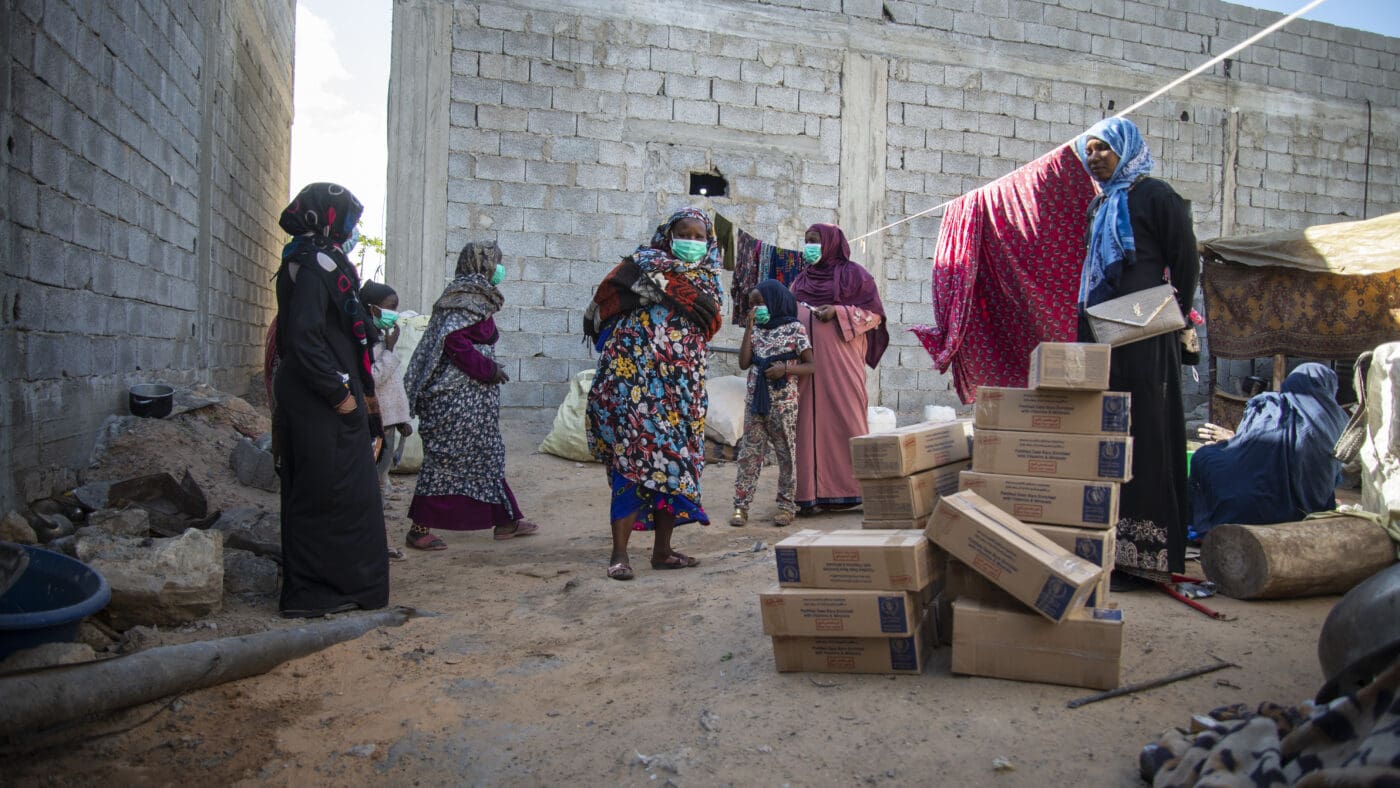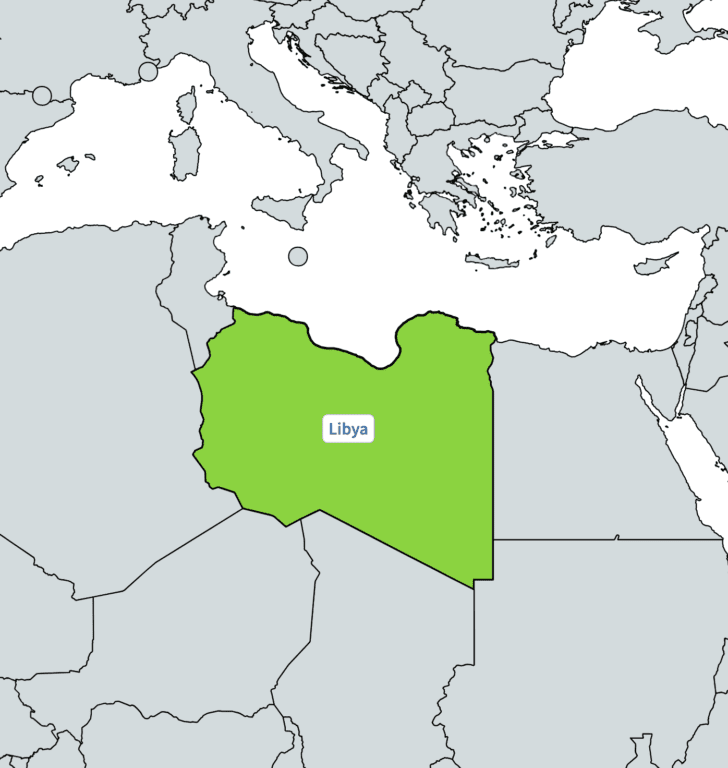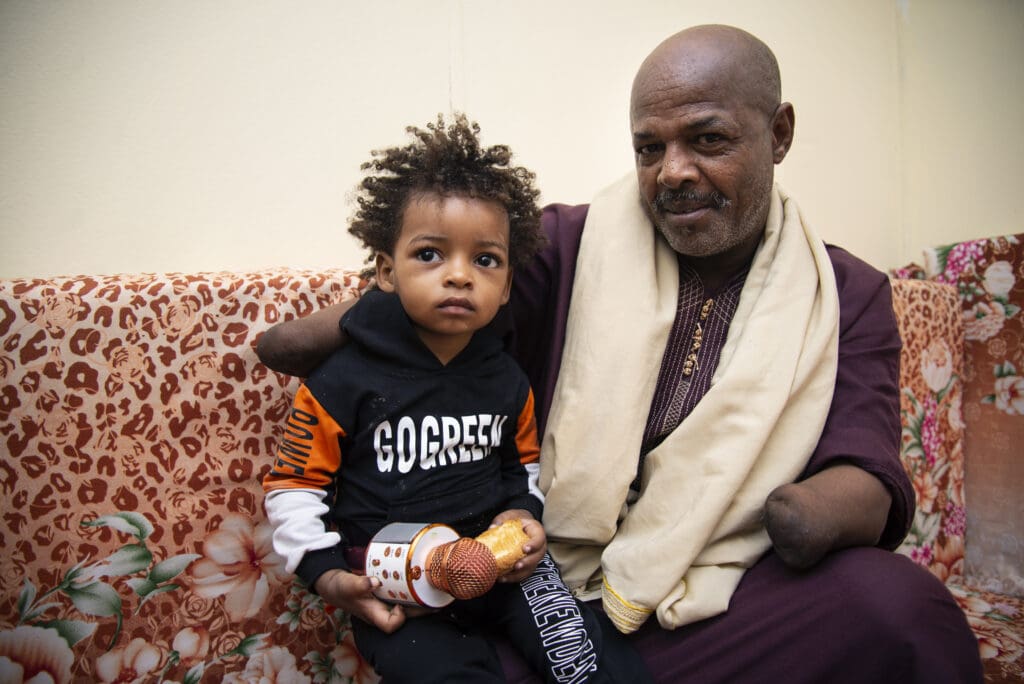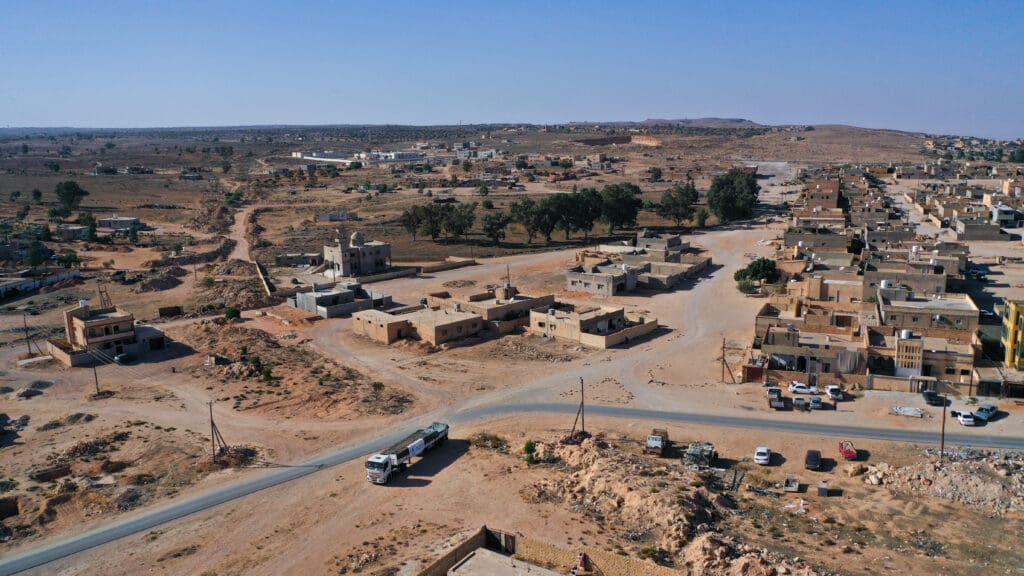
Libya
In Transition & Recovery
Years of political instability and a recent economic crisis have left the country in a fragile state of transition. The recent deadly floods threaten its recovery and may put many more at risk of hunger.
Help send food to people in places like Libya.
Conflict has fueled political and economic instability, displacement, unemployment, poverty and hunger in Libya.
Unemployment rate in Libya
People need food assistance
People receive food monthly from WFP
Libya Facts
Population: 8.2 million people.
Background: Libya gained its independence in 1951. Oil was discovered shortly after, which has contributed to immense wealth for the country.
Geography & Climate: Libya is located in northern Africa and shares its borders with Egypt, Sudan, Chad, Niger, Algeria and Tunisia. The Mediterranean Sea borders the north of the country. Except for its Mediterranean coast and climate, 90% of the country is an arid desert and mostly flat.
Economy: Oil is a main source of income for Libya, with oil and natural gas accounting for 75% of Libya’s revenue. While this makes Libya a wealthy country, there is still high unemployment and inequality.

What’s Causing Hunger in Libya?

Civil War & Instability
Since the Arab Spring in 2011, Libya has gone through civil war and continued unrest. The ongoing conflict has resulted in mass displacement and hunger. The political instability has also created an economic crisis, with fluctuating oil revenues, devalued currency, exhausted social safety net and high unemployment – all of which have fueled hunger even more.

Droughts & Floods
Libya is especially vulnerable to the impacts of the climate crisis including droughts. With a largely desert environment with less than 1% arable land and poor soil, Libya struggles to sustainably produce food and must import up to 90% of its food. Libya is also susceptible to floods, with the most recent and devastating on September 11.
WFp’s Work in Libya
Since 2018, we have scaled up our operations in Libya. Though conflict and climate-related disasters, we’ve provided food assistance for people in need. In 2022, we reached 234,000 people. Now, we are scaling up further to meet the unprecedented needs fueled by the recent floods.

WFP provides food and cash assistance to displaced people, returning refugees and others facing severe hunger.


In 2019, we launched our school meals program in Libya. Today, we reach over 43,000 schoolchildren with food.


WFP vocational trainings to help people find employment. Through the training, people develop business skills.

Help Save Lives by Sending Food
When you donate, you help us deliver critical food assistance to the most vulnerable people in Libya and other countries around the world. You can make difference in someone’s life – send food today.